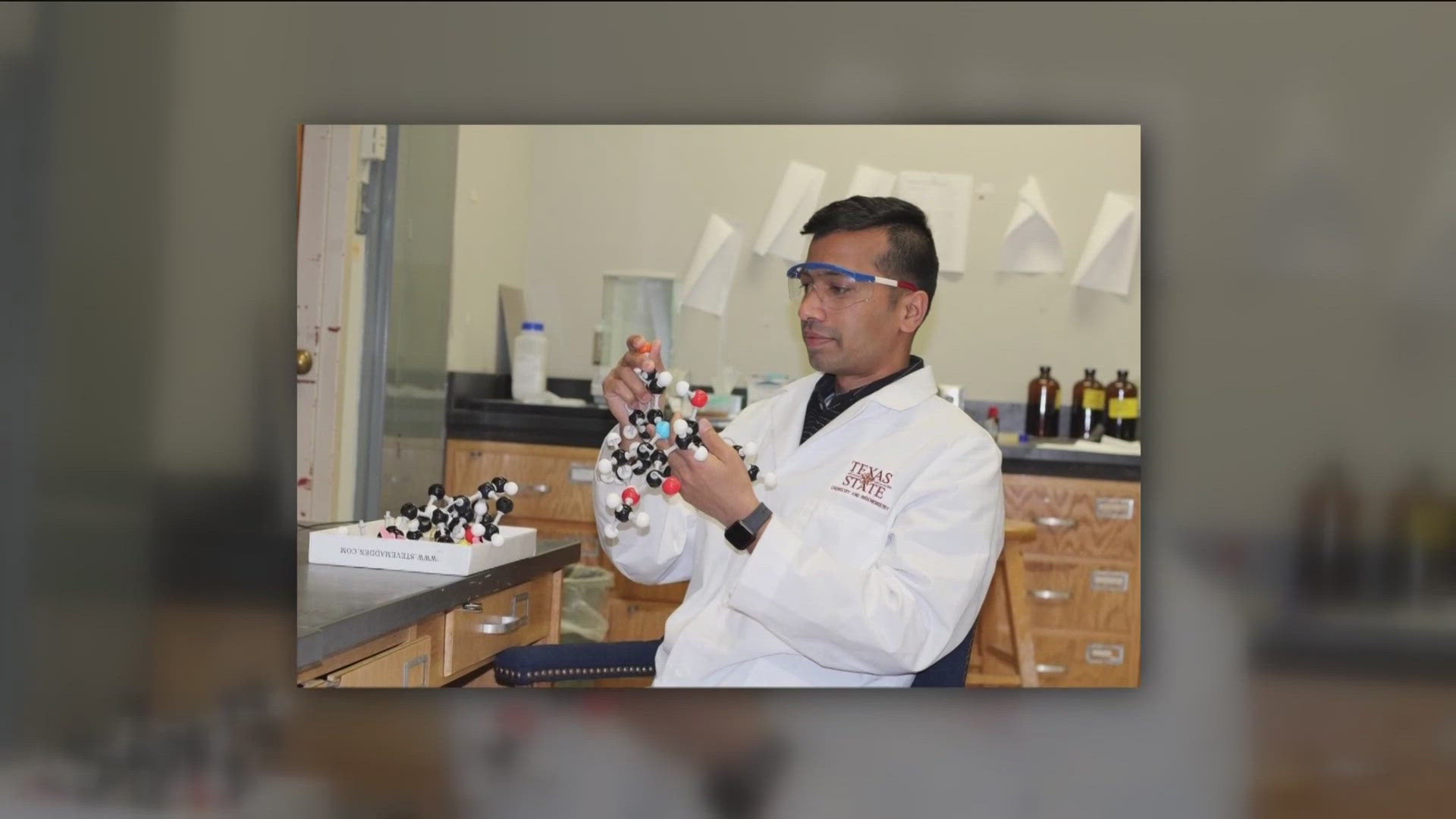SAN MARCOS, Texas — Researchers at Texas State University say they have made a discovery that could one day improve cancer treatment – and it comes from fungus.
Sphaeropsidin A, or SphA, is a derivative from a fungus called Diplodia cupressi.
"We found that this particular toxin is associated with some interesting anti-cancer properties," Dr. Alexander Kornienko, a professor and researcher at Texas State University, said.
Kornienko is working closely on this discovery. He is a part of the team that recently discovered SphA as a compound that reduces cells related to melanoma and kidney cancers.
"It induces cell shrinkage. So, there's a resistance mechanism that has been developed that cancer cells have utilized, specifically to resist to cell shrinkage," Kornienko said.
There's still a lot of work to be done. The doctors and researchers have moved into the patent phase, now working to test on mice with actual human cells, to work towards getting the clearance the compound needs.
Dr. Shachin Wagh worked as a postdoctoral researcher on this project. For him, his connection to working toward a cure for cancer runs deep, after he lost his cousin.
"Doctors were not able to recognize at an early stage, and it was literally one-and-a-half weeks and he lost his life," Wagh said. "I was not able to save still my cousin, but yeah, I should start working really hard and make society better."
Kornienko said the hope is this will be a great addition to other current cancer treatments.
"Ideally, you would want to use Sphaeropsidin A in combination with other types of chemotherapy," Kornienko said.
The researchers say they are now working on a more potent form of the compound that would do a better job of attacking only cancer cells rather than healthy ones.

